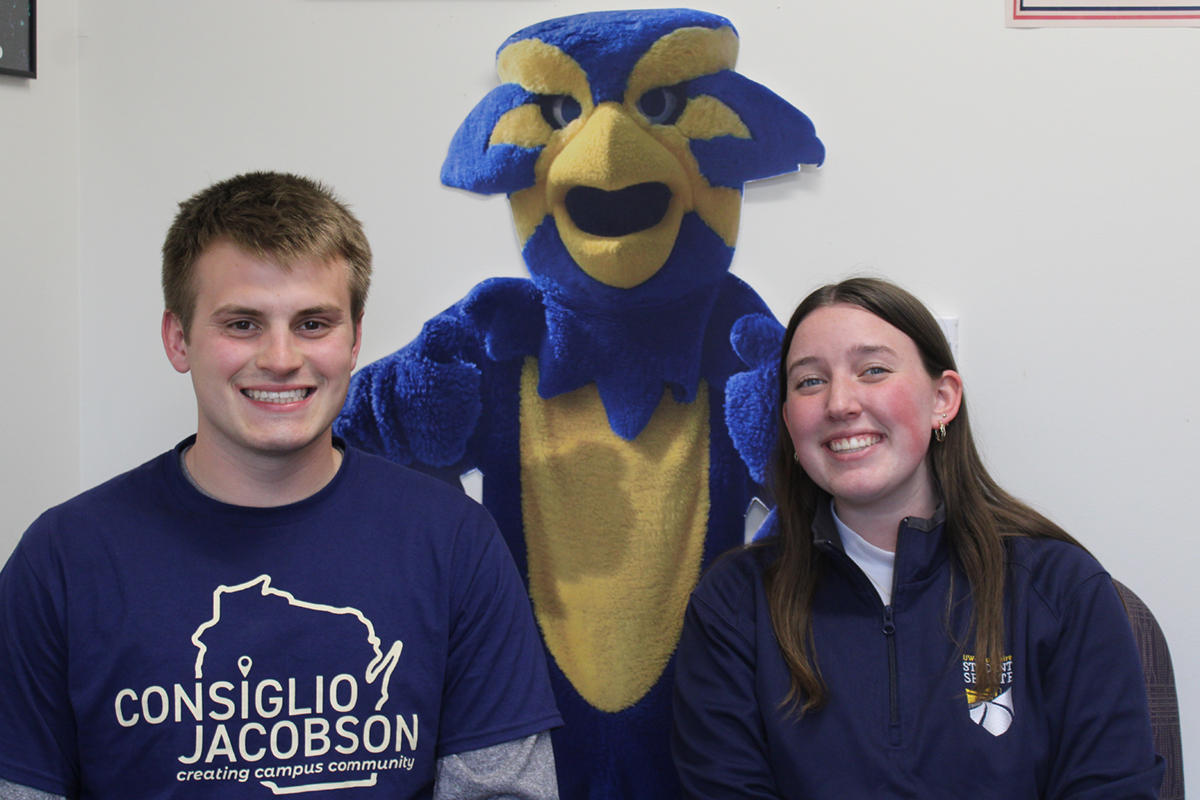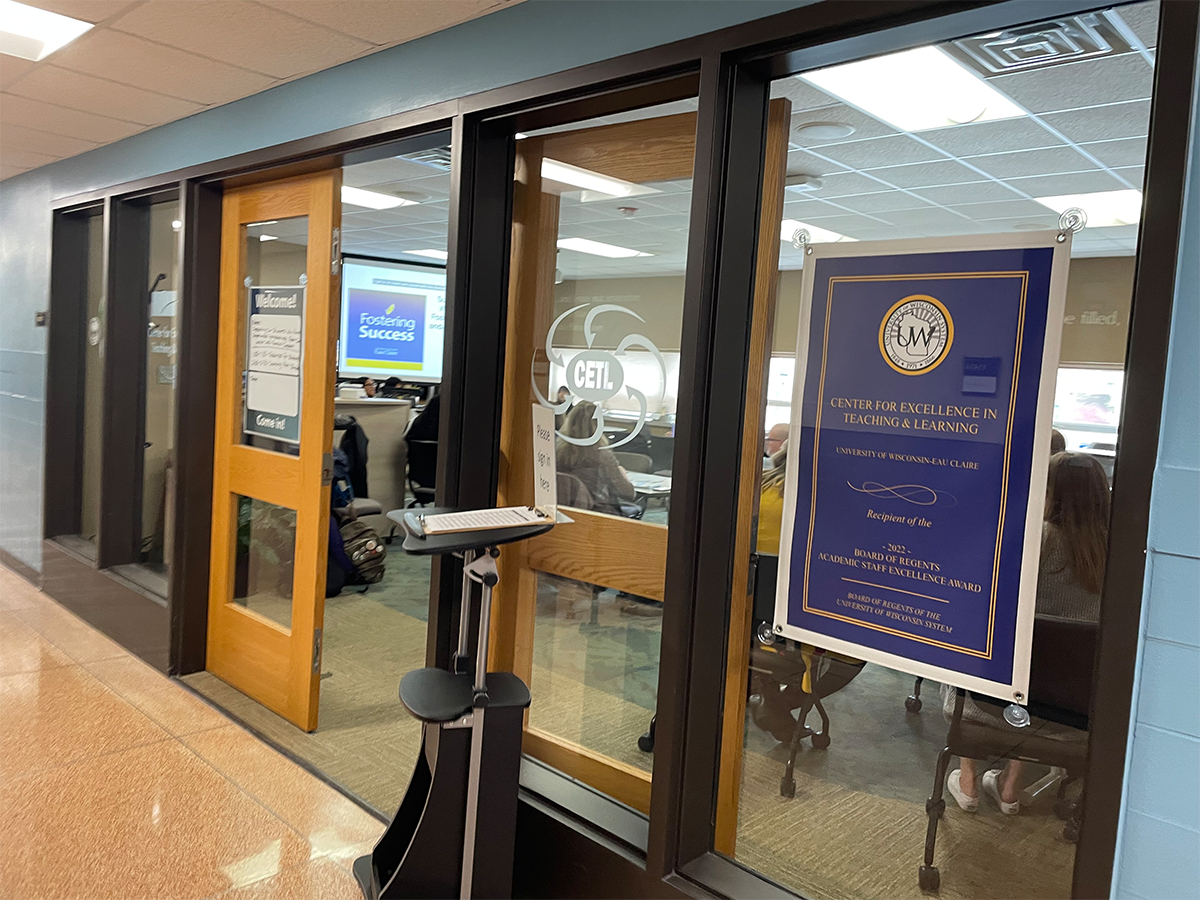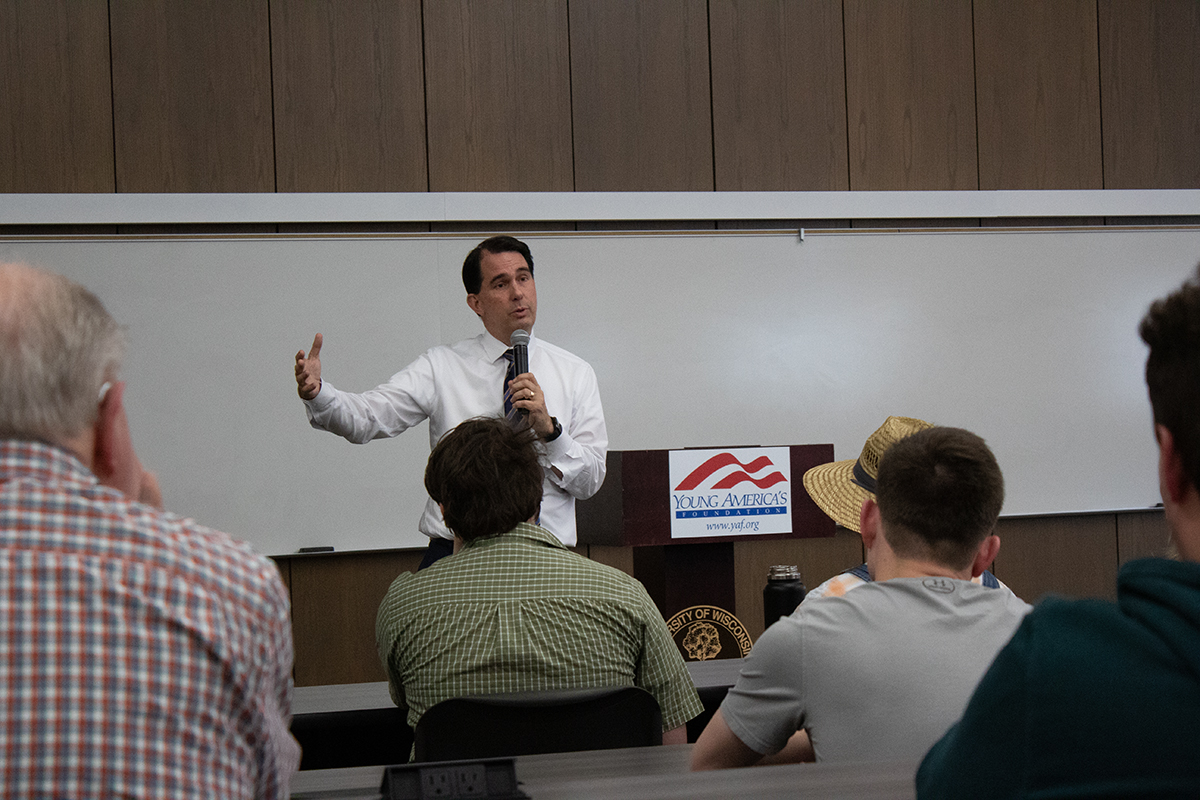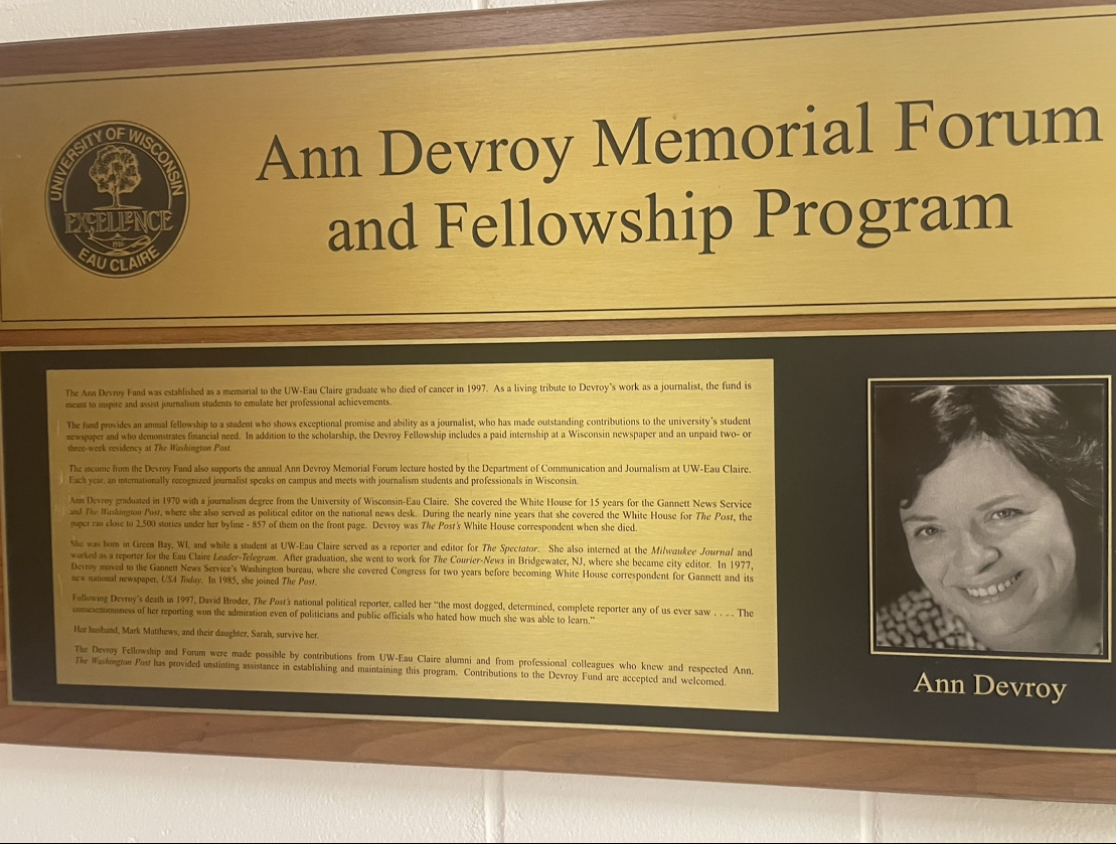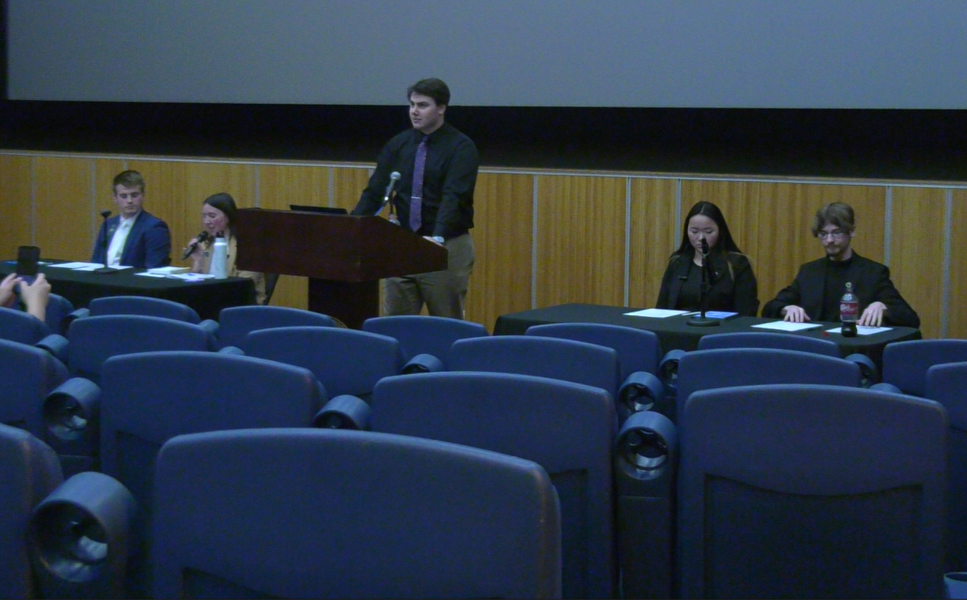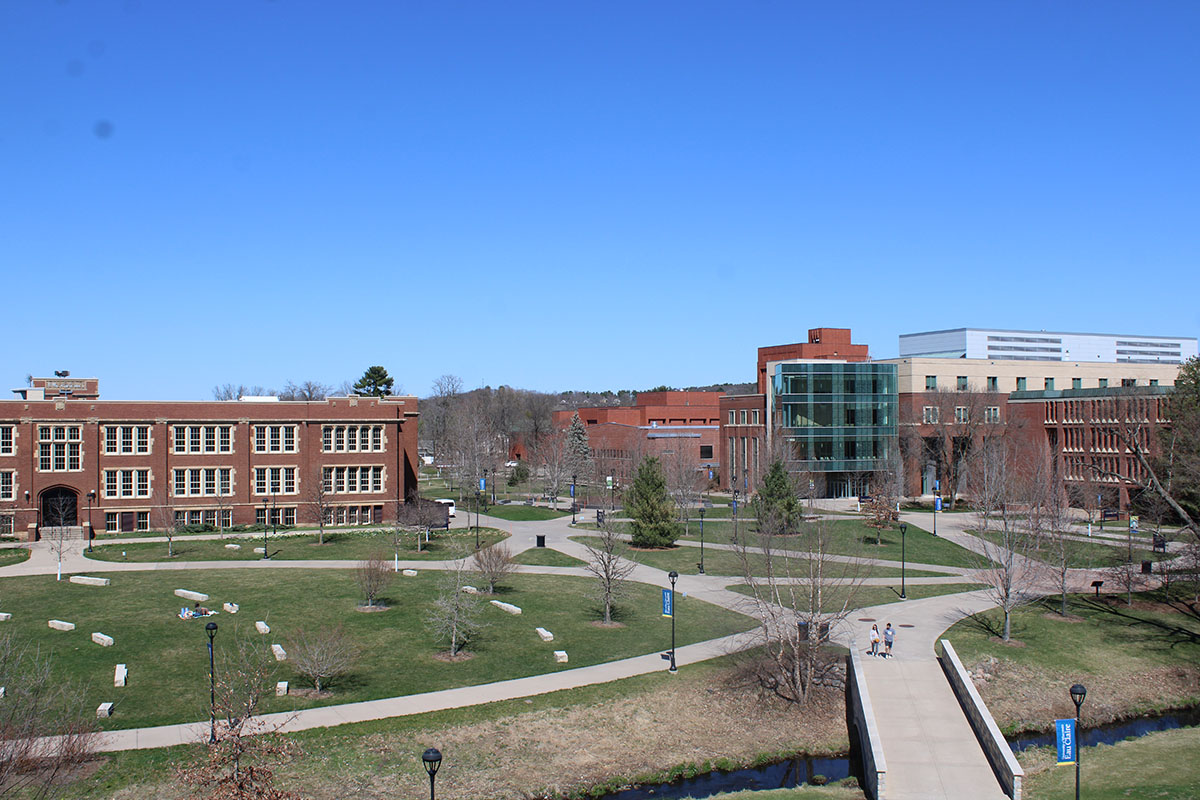Some of the best things in life are free – but copyrighted online music doesn’t seem to be one of them.
On Dec. 13 the university’s room connectivity services sent an informational e-mail to students living in the dorms, reminding them of the terms under the U.S. Copyright Law and UW-Eau Claire Computer and Networking Usage Guidelines. Students who create unauthorized MP3 sites by copying sound recordings to a server or offering such recordings for download by others are in violation of these regulations.
An MP3 is a digital sound file that can be downloaded quickly with much ease from various Web sites.
The Recording Industry Association of America is leading the copyright campaign. The RIAA is the copyright representative for the nation’s five major music labels who have been fighting illegal MP3 hosting sites, such as the popular Napster site.
Richard Dirks, the university’s copyright officer, said the RIAA has notified the university eight times since April 1999 of specific illegal copyright use through the school’s server. All of the notifications were first-time warnings to individual students.
He said if the school didn’t act upon the RIAA’s notices, it would be in violation of the Digital Millennium Copyright Act of 1998.
The school e-mail said that people caught hosting illegal MP3 sites would be requested to remove the files or risk revocation of computer and network access and face a possible civil suit and criminal prosecution.
Dirks said at this point there is no set policy as to when the school would take action on a second notification from the RIAA for the same student.
“There is a precedence,” Dirks said. “Students have been severely fined at other campuses around the country. It’s happening everywhere.”
Dirks said the school is not acting as the copyright police. Rather, it is legally obligated as an Internet service provider to assist copyright holders and representatives in identifying people who are hosting or offering MP3s through servers for use on the Web. This includes anyone who uses the school’s server on campus or off.
He said the school is focusing on the educational effort of creating awareness.
“We take this very seriously and we expect students to take this seriously,” Dirks said.
Doug Curry, spokesman for the RIAA, said the organization has a team of Internet specialists scanning the Net for illegal activity.
The university’s director of Computing and Networking Systems, Jim Lowe, said the RIAA is able to track the illegal users from its Net scan by tracing a user’s IP address, which is the equivalent of a street address for each computer that is online.
A big reason for the RIAA’s campaign is due to the amount of sales revenue it claims to have lost and continues to lose from the illegal online use of copyrighted music.
“Any time an industry is trying to compete for free, you’re going to lose money,” Curry said.
He said the RIAA’s main purpose, in regard to the Internet, is to make sure its companies’ music is fairly and legally distributed online and off. But, like the university, Curry said the RIAA looks at it more as an educational campaign.
Sophomore Mikhail Koffarnus, who has about 2,600 MP3s on his computer, said he knows it’s legally wrong, but doesn’t think it’s morally bad.
“It can’t be hurting (the RIAA) too much,” said Koffarnus, adding that he thinks music sales have actually increased since the Napster controversy.
Curry, though, doesn’t believe that’s enough to necessitate the unauthorized downloading people are doing.
“(The increased sales) numbers don’t take away from the fact that an illegal activity is still an illegal activity, regardless of some numbers,” said Curry.
But Curry hopes the controversy won’t be an issue in the future.
“I’d like to think students 20 years from now will be completely respectful of intellectual property,” he said.
“Hopefully our efforts take us in the right direction.”

